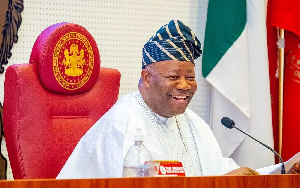The cost of refilling a 12.5kg liquefied petroleum gas (LPG), commonly known as cooking gas, has seen a decline, according to recent data released by the National Bureau of Statistics (NBS).
In its May 2023 LPG report, the NBS revealed a 7.61% month-on-month decrease in the average retail price for a 12.5kg LPG cylinder, dropping from N10,323.33 in April 2023 to N9,537.89 in May 2023.
However, compared to the same period last year, there was still a 9.30% increase from N8,726.30 in May 2022.
The report also highlighted a decline in the average retail price for refilling a 5kg cooking gas cylinder.
On a month-on-month basis, there was a 6.07% decrease, with prices falling from N4,642.27 in April 2023 to N4,360.69 in May 2023.
Yet, in comparison to May 2022, there was an 11.20% increase from N3,921.35.
More details
Nigerians in Cross River, Jigawa, and Akwa Ibom states paid the highest costs for 12.5kg LPG refill during the highlighted period.
People in Cross River paid N11,083 per refill, meanwhile, those in Jigawa paid N10,975 per refill and people in Akwa Ibom paid N10,174.29 per refill.
However, Nigerians, in Adamawa, Zamfara and Borno paid the lowest costs for 12.5kg LPG refill during the highlighted period.
In Adamawa, a 12.5kg refill costs N7,925, it costs N8,128.57 in Zamfara and it costs N8,200.
Also, Bayelsa recorded the highest average price for refilling a 5kg cylinder of cooking gas with N5,016.67, followed by Zamfara with N5,000.00, and Abuja with N4,900.00.
Meanwhile, Ondo recorded the lowest price with N3,795.83, followed by Nasarawa and Edo with N3,800.00 and N3,837.14 respectively.
Insights
Nigeria still has an LPG availability challenge because some of the LPG is being imported as local supply does not adequately meet up with local demand.
Despite intervention from Nigeria’s Liquefied Natural Gas Limited, Nigeria still imports LPG into the country.
N3,800.00 and N3,837.14 respectively.
NLNG had planned to supply 100% LPG, however, it has only been able to supply 40%, representing 400,000 tons of LPG, meanwhile, the 60% shortfall is being imported by marketers.
So, LPG costs have been fluctuating, which is evident in the cited NBS data that shows an increase in costs year-on-year and a decline month-on-month.
As a result, more Nigerians have switched from using LPG for cooking to firewood or other polluting fuels.
For those who continue to use LPG, the situation has led to increased costs.
During a June 28 interview via Arise TV, Kelvin Emmanuel, the Chief Executive Officer of Dairy Hills said Nigeria has only two functional LPG landing jetties in Nigeria, and the country does not have enough bulk storage terminals in handling LPG.
Meanwhile, the country needs up to 70,000 to 100,000 metric tons of bulk storage terminals.
According to him, the lack of adequate LPG infrastructure in the country will always impact on prices.
He also pointed out that LPG prices will fluctuate based on locations, which is why the NBS data shows varying prices across states.
What you should know
Since the removal of Nigeria’s long-standing fuel subsidies nearly a month ago, many Nigerians have looked at the possibility of switching their petrol generators to run on LPG, which is a variant of natural gas.
This is because fuel pump prices have tripled since the removal of fuel subsidies in the country.
Aside from being a cleaner energy source than fuel, LPG is said to be cheaper compared to current fuel pump prices which range between N488 to N570 per litre.
Business News of Thursday, 29 June 2023
Source: www.nairametrics.com
Cost of 12.5kg LPG refill declines to N9,537 in May 2023 – NBS
Entertainment












